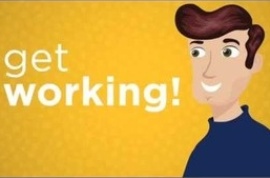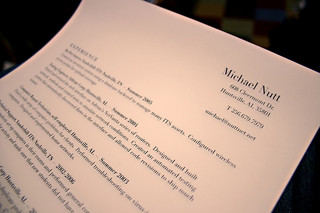Spice Up Your Resume with Action Verbs

© Can Stock Photo / profotokris
Writing a resume can be tough. Formulating all of your accomplishments into clear and concise sentences can take many revisions. One of the best ways to give your resume the extra spice it needs to stand out is to include a good variety of resume action verbs. Just like adding lots of spices and herbs to your favorite dish, you need to keep the reader (recruiter) interested in your profile by adding lots of resume action verbs.
These action words should speak to all of your hard work and add the “flavor” needed to set you apart from the pack. If you use the word “manage” over and over again throughout your resume, you may not get the attention you deserve. Add some spice!
Take a good look at each word that starts each bullet on your resume. All bullets should begin with resume action verbs and there should be variety on every line.
Use a Variety of Resume Action Verbs
Below are some examples of solid resume phrases using resume action verbs.
- Launched multiple new customer requested features including …
- Built go-to-market strategy for …
- Directed, coached and mentored a team of 5 people
Highlight Key Metrics
Another key item that recruiters look for are metrics. Show off your accomplishments by showing true measurable growth stats that you can speak to clearly.
- Achieved and exceeded increasing annual quotas: 2015 (140%); 2016 (121%); 2017 (125%)
- Built lead generation program that contributed to the company’s growth goal of reaching 1,000 clients in 18 months
- Wrote and published over 150 articles in 12 months
Take a look at these examples of sample resume templates as well to get ideas about formatting options. See more tips on updating your resume.
Resume Action Verbs
Utilize many of these resume action verbs and add some more punch to that stale resume!
| · Achieved |
| · Acquired |
| · Advised |
| · Analyzed |
| · Built |
| · Campaigned |
| · Coached |
| · Consulted |
| · Convinced |
| · Coordinated |
| · Counseled |
| · Created |
| · Cultivated |
| · Defined |
| · Delegated |
| · Delivered |
| · Designed |
| · Developed |
| · Directed |
| · Documented |
| · Educated |
| · Enforced |
| · Engineered |
| · Enhanced |
| · Established |
| · Evaluated |
| · Examined |
| · Executed |
| · Forecasted |
| · Formed |
| · Fostered |
| · Founded |
| · Generated |
| · Hired |
| · Illustrated |
| · Implemented |
| · Improved |
| · Increased |
| · Informed |
| · Instructed |
| · Introduced |
| · Launched |
| · Led |
| · Managed |
| · Measured |
| · Mentored |
| · Monitored |
| · Negotiated |
| · Operated |
| · Organized |
| · Outpaced |
| · Overhauled |
| · Partnered |
| · Persuaded |
| · Pioneered |
| · Planned |
| · Presented |
| · Published |
| · Recruited |
| · Redesigned |
| · Restructured |
| · Saved |
| · Screened |
| · Shaped |
| · Shipped |
| · Simplified |
| · Surveyed |
| · Taught |
| · Tested |
| · Tracked |
| · Trained |
| · Transformed |
Upload Your Resume to StartWire
After fine tuning your resume as much as you can, you should definitely send it to family and friends to review and check for spelling, grammar, and any comments on anything you may have forgotten to include. Once you are ready to share your resume with recruiters, you should upload your resume to StartWire.com and you’ll have multiple options to send it out for possible call backs for opportunities.










